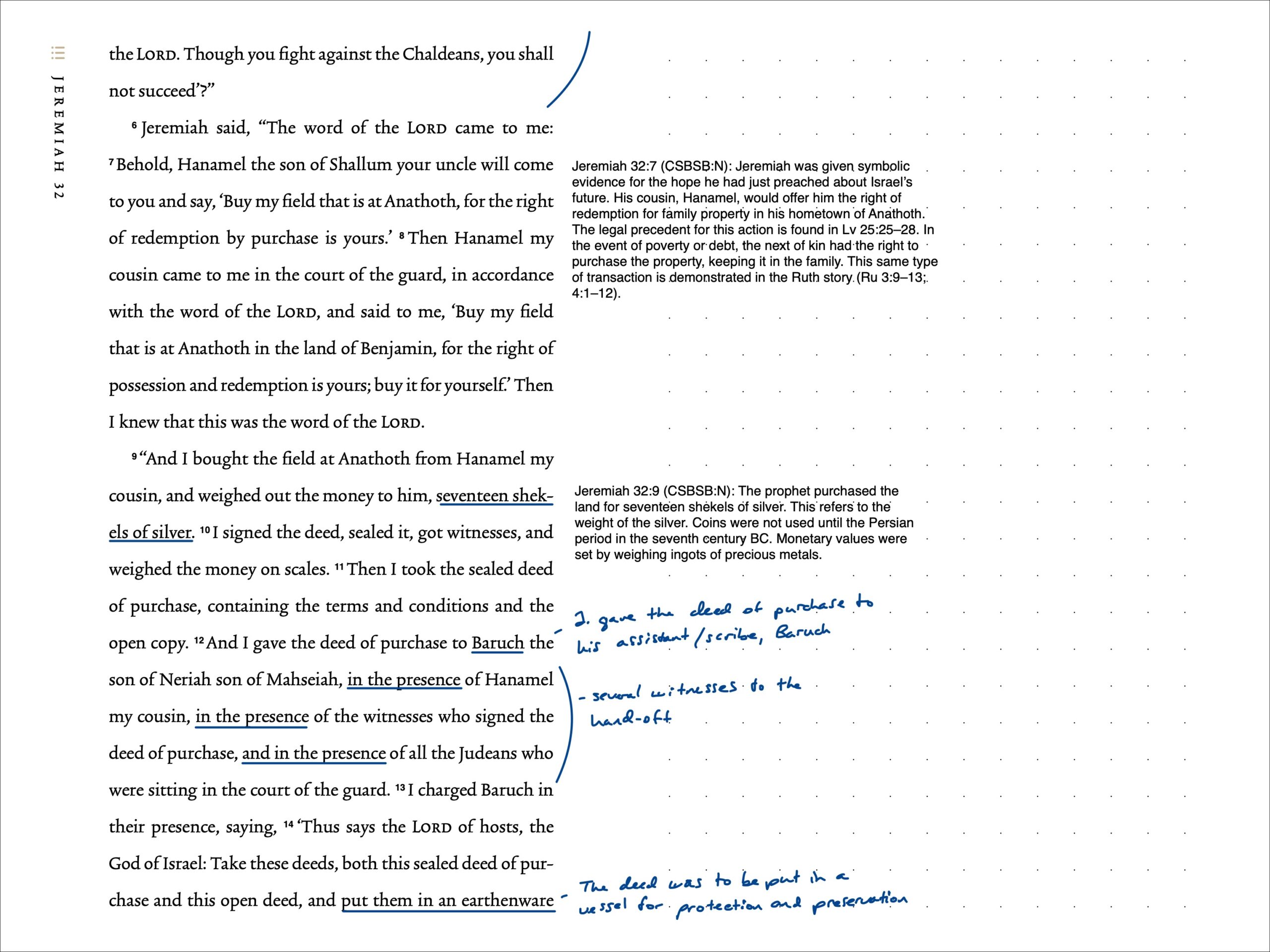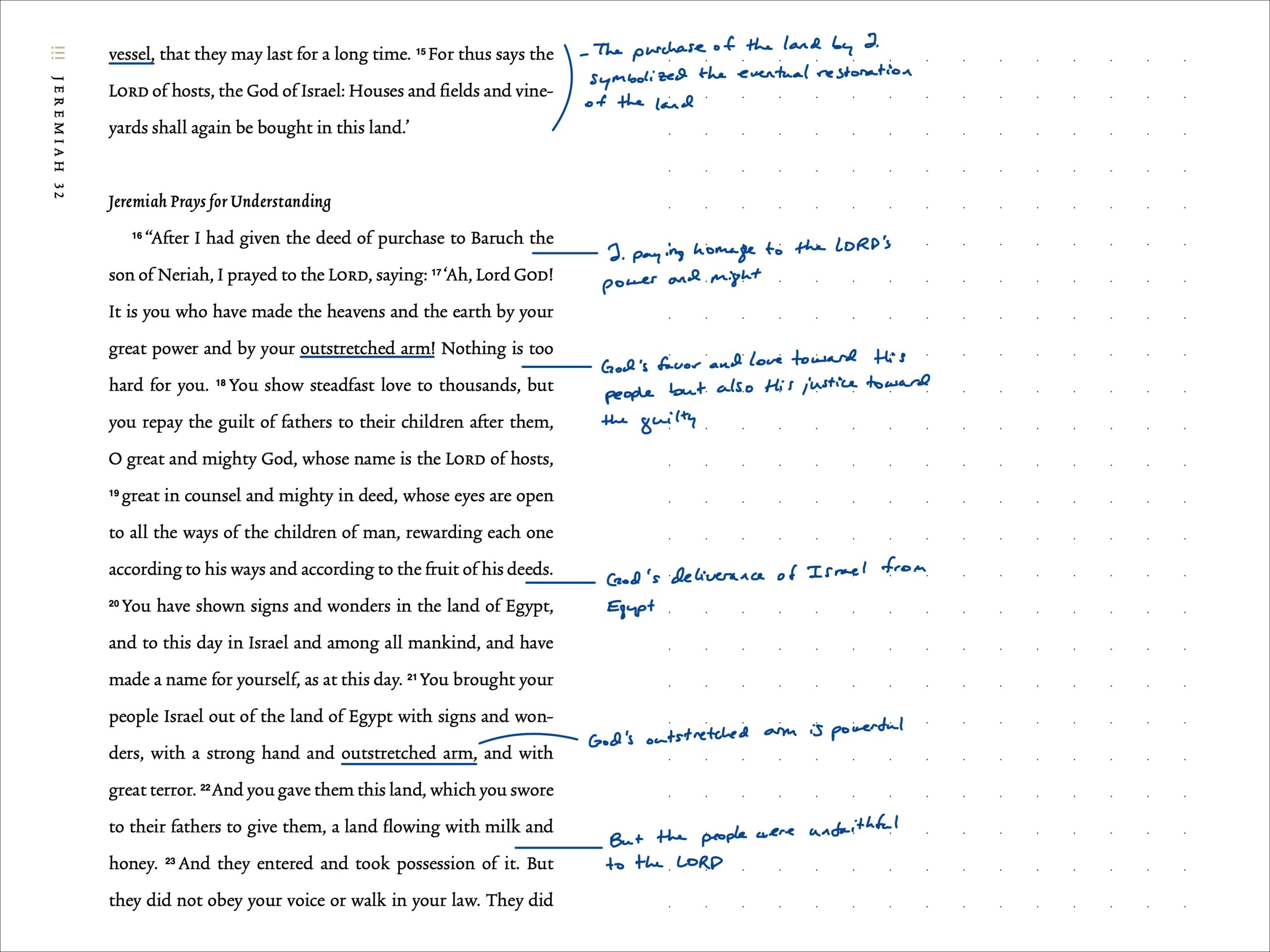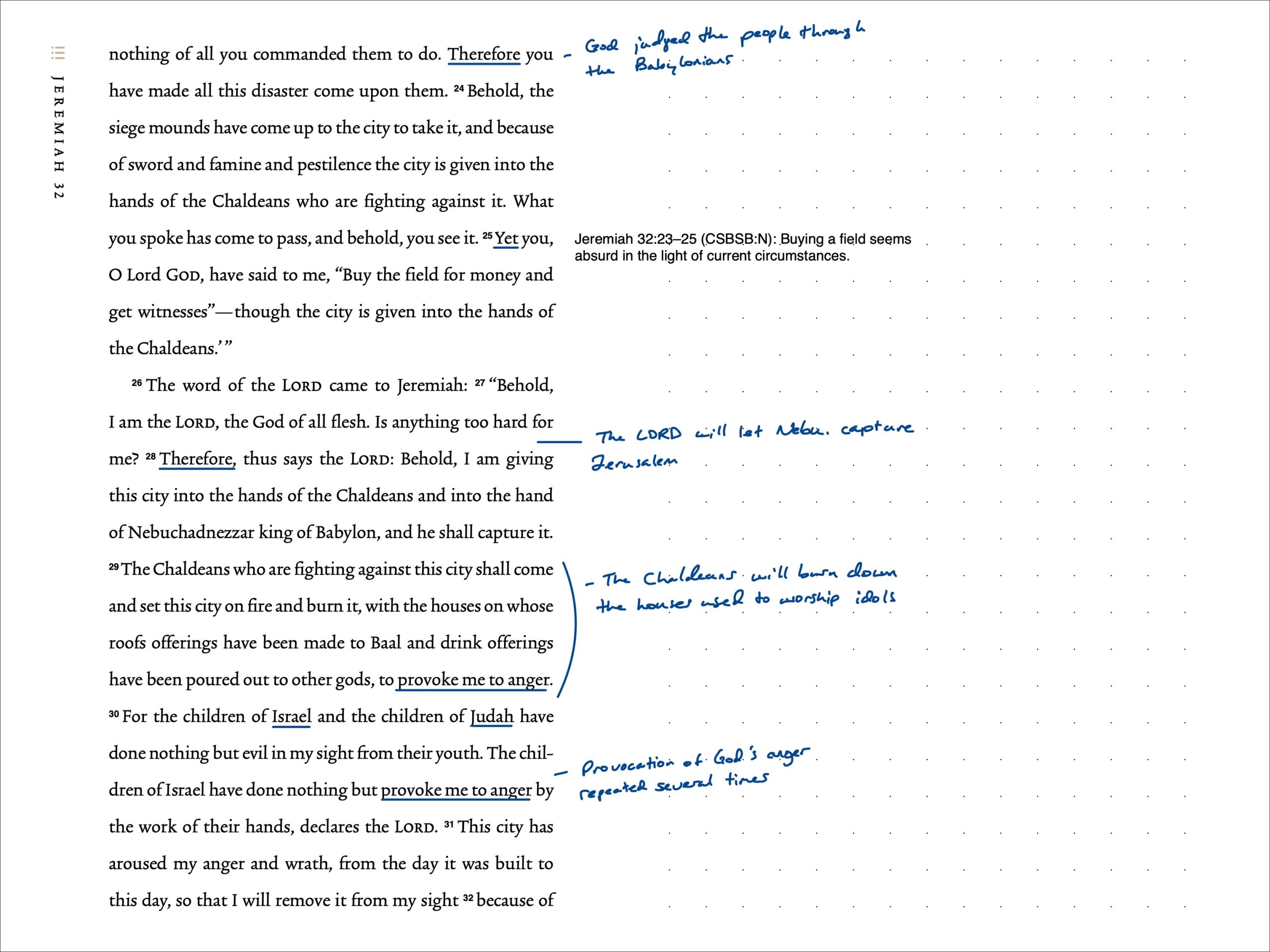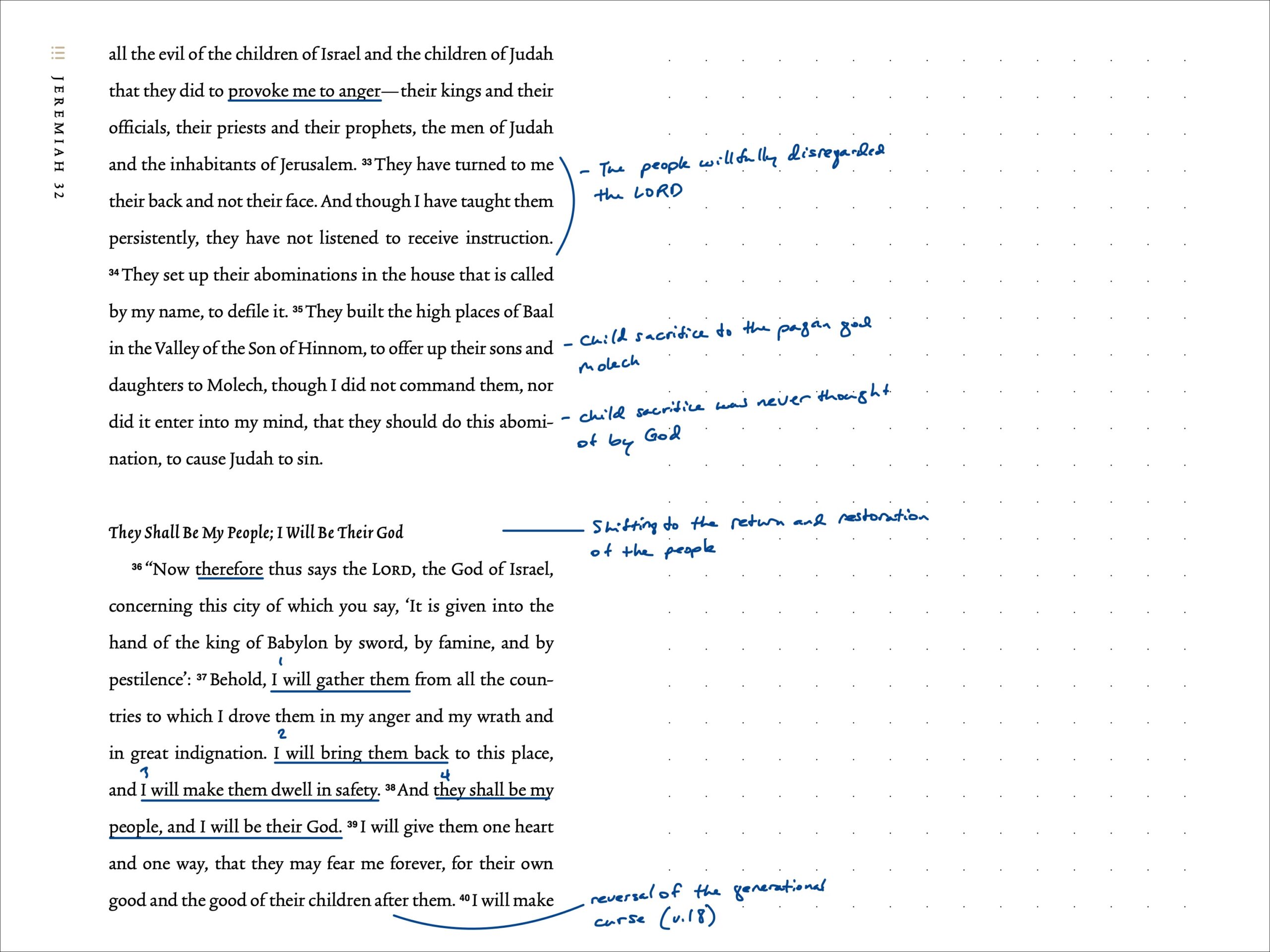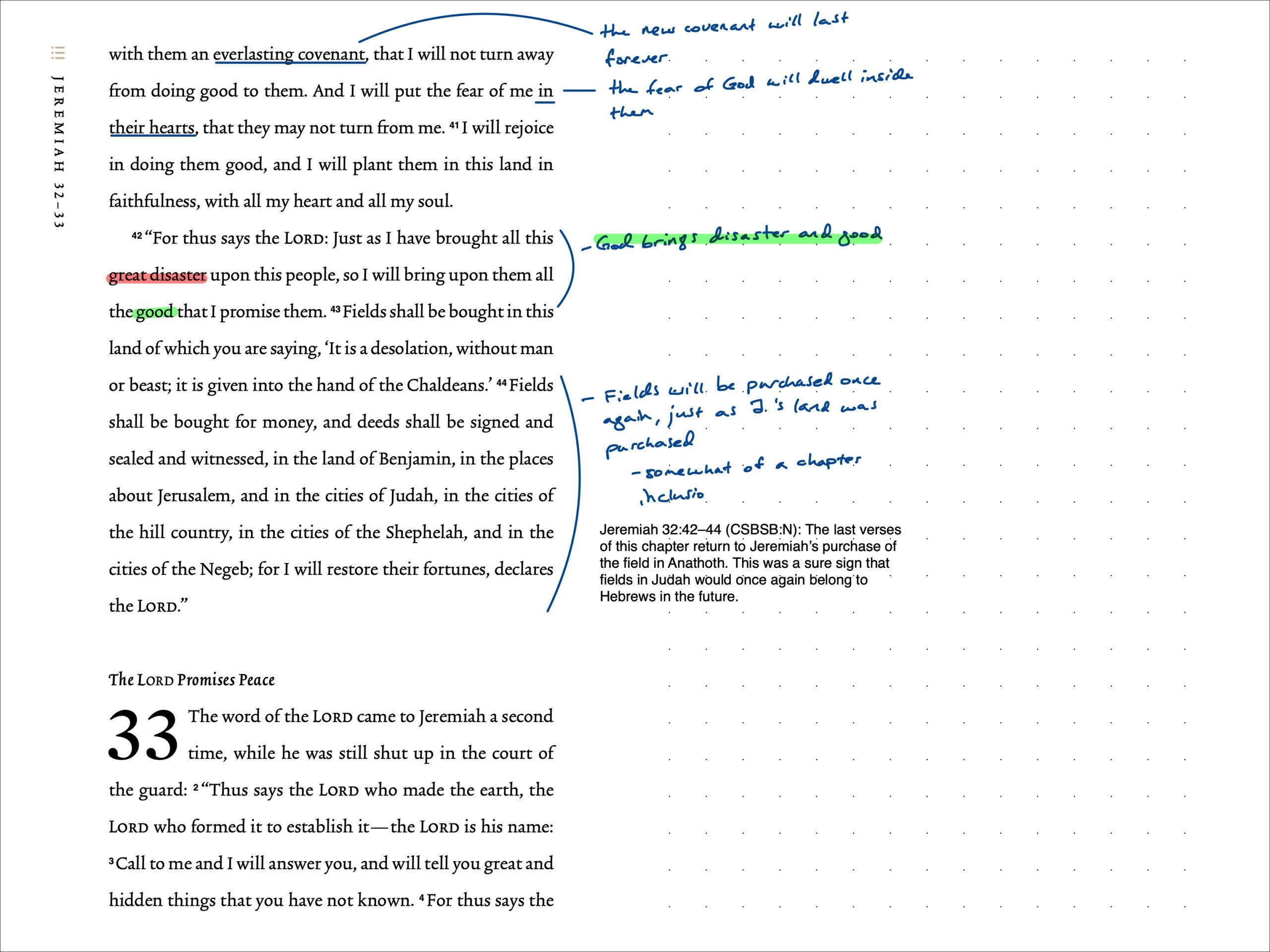| Date | Version | Reading Plan |
|---|---|---|
| @July 25, 2023 | ESV (2016) | ESV Prophets Plan 2023 |
Pericopes
- Jeremiah Buys a Field During the Siege
- Jeremiah Prays for Understanding
Notes
The chapter opens with a word of the LORD given to Jeremiah while incarcerated by Zedekiah and during the Babylonian siege. Jeremiah had been locked up for prophesying (truthfully) about the Chaldean takeover and Zedekiah’s capture (Jer. 32:4).
In Jer. 34:6-8, God tells Jeremiah that his uncle, Hanamel, will come to him to purchase his land. Jeremiah then buys the land for “seventeen shekels of silver” and signed the deed of purchase among several witnesses (Jer. 32:9-11). The “shekels” refer to the weight of silver as coins were not used until the Persian period in the seventh century BC. Jeremiah then charge Baruch, his scribe, with the responsibility of sealing the deeds and putting them “in an earthenware vessel” (Jer. 32:15). This purchase of the land was to symbolize the eventual restoration of the land.
Jer. 32:16 begins a lengthy prayer by Jeremiah. He first pays homage to the LORD’s power and might (Jer. 32:16-17) and then regards His favor and love toward His people but also justice toward the guilty (Jer. 32:18). In Jer. 32:20-3, Jeremiah recounts God’s deliverance of Israel from Egypt, bringing the people out “with a strong hand and outstretched arm” (Jer. 32:21). All this as a pretense to Jeremiah’s land purchase, which would have seemed absurd at the time as they were embroiled in foreign hostility by the Chaldeans (Babylonians) (Jer. 32:25).
Jer. 32:26-35 is a long discourse of Nebuchadnezzar’s capture of Jerusalem and the impetus behind it. The Chaldeans will burn down the houses that were used for offerings to Baal (Jer. 32:29) stemming from the provocation of God’s anger (a heavily repeated theme in this section). The people had willfully disregarded the LORD and his instruction (Jer. 32:33) and even sacrificed their own children to the pagan God, Molech. Child sacrifice was never a consideration by God as a worthy manner of worship (Jer. 32:35).
There is then a shift at Jer. 32:36 to the eventual return and restoration of the people. There will be a succession of events instituted by God: 1) He will gather them, 2) He will bring them back, 3) He will make them dwell in safety and 4) they will be His people and He will be their God. He will then establish a new, “everlasting covenant”, with the fear of Him placed directly “in their hearts” (Jer. 32:40).
In Jer. 32:42, God speaks that just as He had brought the Babylonian disaster upon the people, He will also bring the good that He promised them. The remaining verses of the chapter (Jer. 32:43-44) are of this restoration and that fields will be purchased in the land. Jeremiah’s land purchase in the midst of the takeover was a sign that the fields in Judah would once again belong to the Hebrews in the future.
Application
The parallel threads of Jeremiah’s land purchase and destruction/restoration of the land is a fascinating read. Using this as an illustration of eventual restoration must have been reassuring for the people at the time. It was the first instance of the type of healthy land transactions that were to come in the reinstated Jerusalem.
Also worth noting is Jer. 32:42 that displays God’s active will to bring both disaster and blessing. This is a case-crushing verse for those who try to position God as only all-loving. God is love, yes, but this love is often made manifest through harsh correction. It is because He is perfect love, not in spite of it, that His justice is duly apportioned to the guilty.
Scripture Journal Notes
Commentaries & Resources Used
- ESV Study Bible. (Wheaton, IL: Crossway, 2008)
- Faithlife Study Bible (Lexham Press, 2016)
- Believer’s Bible Commentary (Thomas Nelson, 2016)
- CSB Study Bible Notes (Holman Bible Publishers, 2017)
- Matthew Henry’s Commentary on the Whole Bible (Guardian Press, 1976)
- The Bible: A Reader’s Guide (Sterling Publishing, 2011)
- The Infographic Bible (Zondervan, 2018)
- ESV Digital Scripture Journal (Crossway, 2019)

